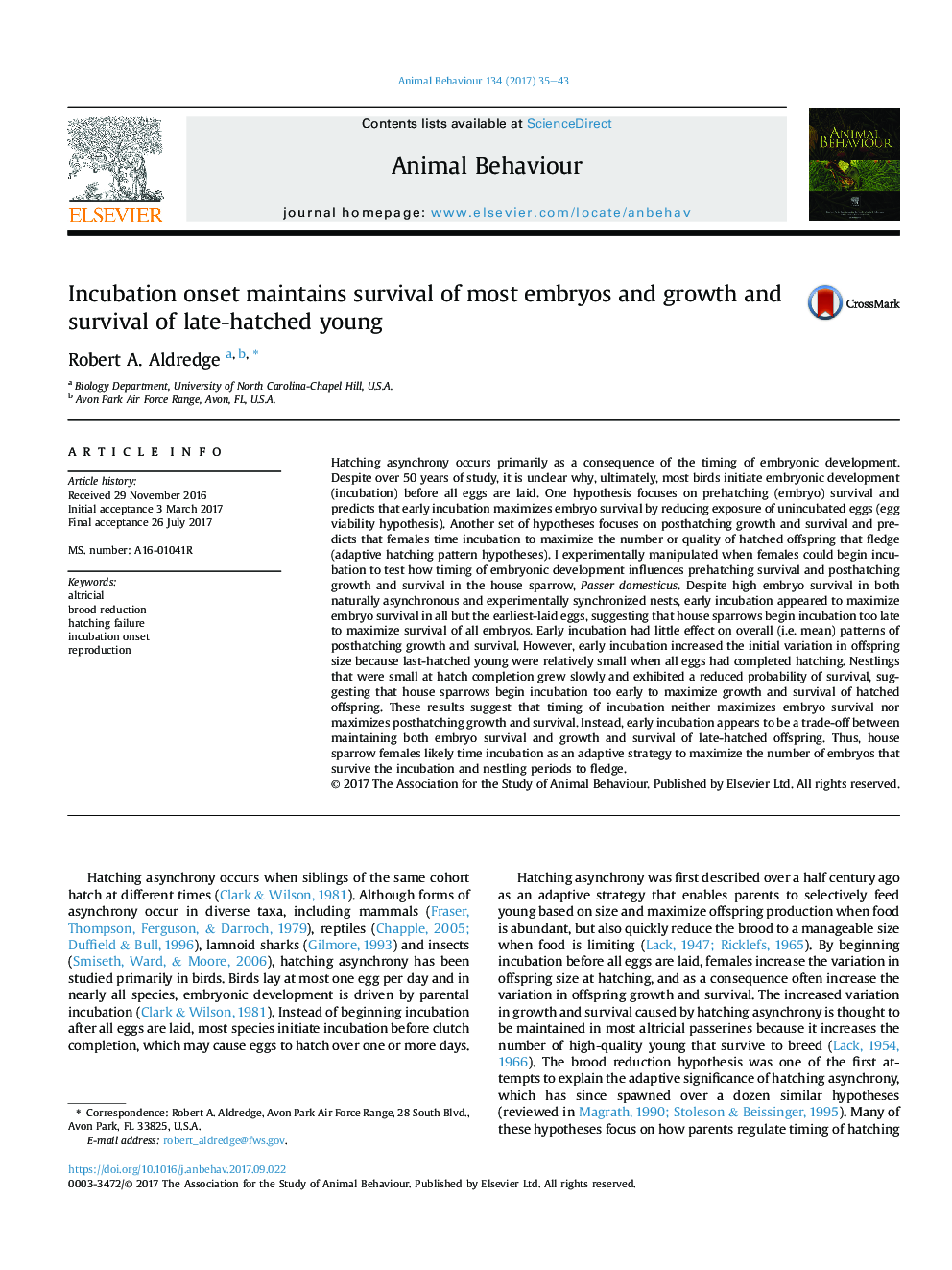| کد مقاله | کد نشریه | سال انتشار | مقاله انگلیسی | نسخه تمام متن |
|---|---|---|---|---|
| 8488770 | 1552194 | 2017 | 9 صفحه PDF | دانلود رایگان |
عنوان انگلیسی مقاله ISI
Incubation onset maintains survival of most embryos and growth and survival of late-hatched young
ترجمه فارسی عنوان
شروع انکوباسیون، بقای بیشتر جنین ها و رشد و بقای جوانانی که دچار انقراض شده اند را حفظ می کند
دانلود مقاله + سفارش ترجمه
دانلود مقاله ISI انگلیسی
رایگان برای ایرانیان
موضوعات مرتبط
علوم زیستی و بیوفناوری
علوم کشاورزی و بیولوژیک
علوم دامی و جانورشناسی
چکیده انگلیسی
Hatching asynchrony occurs primarily as a consequence of the timing of embryonic development. Despite over 50 years of study, it is unclear why, ultimately, most birds initiate embryonic development (incubation) before all eggs are laid. One hypothesis focuses on prehatching (embryo) survival and predicts that early incubation maximizes embryo survival by reducing exposure of unincubated eggs (egg viability hypothesis). Another set of hypotheses focuses on posthatching growth and survival and predicts that females time incubation to maximize the number or quality of hatched offspring that fledge (adaptive hatching pattern hypotheses). I experimentally manipulated when females could begin incubation to test how timing of embryonic development influences prehatching survival and posthatching growth and survival in the house sparrow, Passer domesticus. Despite high embryo survival in both naturally asynchronous and experimentally synchronized nests, early incubation appeared to maximize embryo survival in all but the earliest-laid eggs, suggesting that house sparrows begin incubation too late to maximize survival of all embryos. Early incubation had little effect on overall (i.e. mean) patterns of posthatching growth and survival. However, early incubation increased the initial variation in offspring size because last-hatched young were relatively small when all eggs had completed hatching. Nestlings that were small at hatch completion grew slowly and exhibited a reduced probability of survival, suggesting that house sparrows begin incubation too early to maximize growth and survival of hatched offspring. These results suggest that timing of incubation neither maximizes embryo survival nor maximizes posthatching growth and survival. Instead, early incubation appears to be a trade-off between maintaining both embryo survival and growth and survival of late-hatched offspring. Thus, house sparrow females likely time incubation as an adaptive strategy to maximize the number of embryos that survive the incubation and nestling periods to fledge.
ناشر
Database: Elsevier - ScienceDirect (ساینس دایرکت)
Journal: Animal Behaviour - Volume 134, December 2017, Pages 35-43
Journal: Animal Behaviour - Volume 134, December 2017, Pages 35-43
نویسندگان
Robert A. Aldredge,
